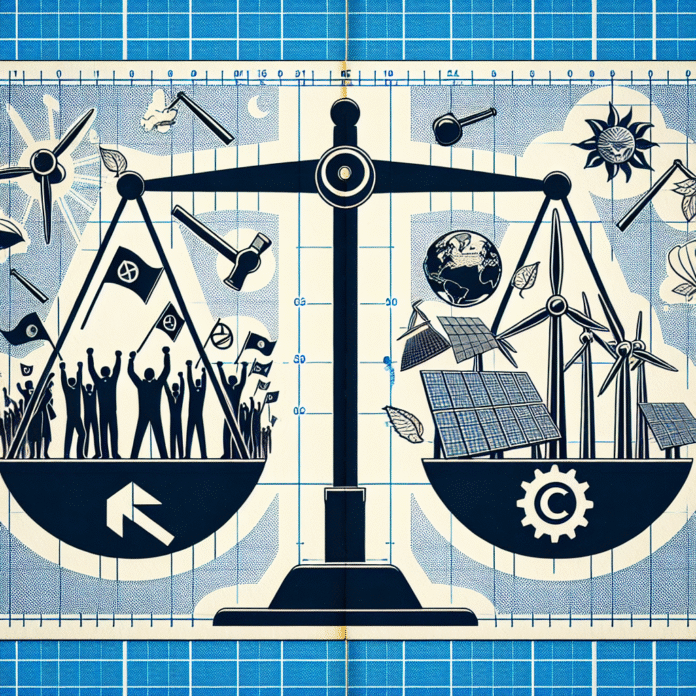Understanding Right-Wing Populist Opposition to Climate Policy
Understanding the Opposition of Right-Wing Populists to Climate Policy
Right-wing populist movements across the globe have increasingly positioned themselves against climate policies, often framing environmental regulations as threats to national sovereignty, economic stability, and individual freedoms. This opposition can be attributed to a variety of intersecting factors that resonate deeply with their base.
Economic Concerns
One of the primary reasons for the resistance to climate policy among right-wing populists is the perceived economic impact. Many populist leaders argue that aggressive climate regulations could lead to job losses, particularly in traditional industries such as coal, oil, and manufacturing. They often claim that the transition to greener technologies will burden taxpayers and threaten livelihoods in regions reliant on fossil fuels. In this narrative, climate policies are seen as elitist measures that disregard the economic realities faced by working-class citizens.
Nationalism and Sovereignty
Right-wing populism is often intertwined with a strong sense of nationalism. Many populist leaders assert that international climate agreements undermine national sovereignty, arguing that they impose foreign regulations on domestic policies. This viewpoint is particularly appealing to voters who prioritize national interests over global commitments. For these populists, climate policies are framed as a form of external control that could compromise a nation’s autonomy and economic independence.
Distrust of Science and Elitism
A significant aspect of the right-wing populist opposition to climate policy lies in a broader skepticism toward scientific consensus and expertise. Many populist leaders capitalize on this distrust, portraying climate science as manipulated by elites with ulterior motives. This rhetoric resonates with their supporters, who may feel alienated by traditional institutions, including scientific bodies and government agencies. By casting climate change as an exaggerated threat, populists can rally their base around the idea that they are the defenders of common people against an out-of-touch elite.
Political Strategy
Populists often thrive on creating a clear “us versus them” narrative, positioning themselves as champions of the ordinary citizen against perceived threats, including climate action. By opposing climate policies, they can galvanize support among voters who feel overlooked or marginalized by progressive agendas. This strategy allows them to consolidate their power while diverting attention from other pressing social and economic issues.
Alternative Narratives
Right-wing populists frequently promote alternative narratives that emphasize economic growth and technological innovation rather than regulatory measures. They might advocate for solutions such as deregulation and market-driven approaches to environmental issues, arguing that these methods can achieve sustainability without sacrificing jobs or economic prosperity. This approach often includes skepticism toward renewable energy initiatives, which they claim could lead to increased energy costs for consumers.
Global Trends and Implications
The rise of right-wing populism and its opposition to climate policies is not confined to any one country or region. This phenomenon can be observed in various contexts, from the United States to Brazil and across Europe. As climate change continues to pose significant global challenges, the political dynamics surrounding climate policy will likely shape future environmental actions and international agreements. The resistance from populist movements may hinder concerted efforts to address climate change effectively unless these concerns are acknowledged and addressed through inclusive dialogue.
In conclusion, the opposition of right-wing populists to climate policy is a multifaceted issue rooted in economic concerns, nationalism, skepticism of scientific authority, and strategic political maneuvering. Understanding these dynamics is crucial for developing effective climate strategies that can gain broader support across the political spectrum. Engaging with the fears and uncertainties expressed by populist constituencies will be essential for fostering a more unified approach to tackling the urgent challenges posed by climate change.


